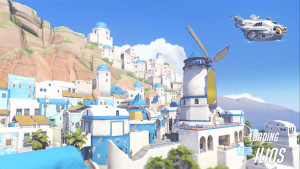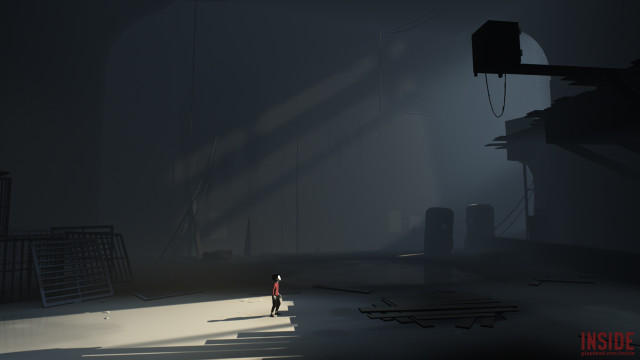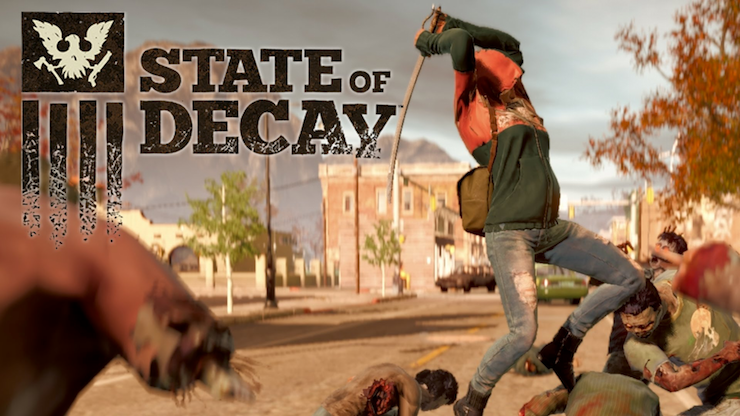So Blizzard gives and Blizzard takes away. Or more specifically, Blizzard made great strides forward with body types and armor coverage for it’s female heroes, but still fell back on old, tired, and offensive stereotypes in an attempt to add some depth to the characters.
Let me start by saying that I have been excited about the prospect of Overwatch since I first saw the announcement trailer and this is not normally my type of game. I like my shooters more straightforward and I like playing in small groups with people that I know and at a pace that my slowed-by-age reflexes can handle. This is why Destiny with it’s small Fire Team sizes work best for me. But I digress, for some reason Overwatch appealed to a part of me that I didn’t know existed. Maybe it was the heroes, maybe it was the fact that you could switch heroes mid-fight, and maybe it was the beautiful backgrounds.
 Overwatch is absolutely stunning, the beautiful blue of the Grecian inspired domed roofs of Ilios, the red and orange hued streets of Dorado, and Big Ben looming in the skyline of King’s Row. All amazing. Too bad I can’t stop for even a second to actually appreciate the landscape without either getting myself killed or otherwise becoming a hindrance to my team. This is, perhaps, why games like Overwatch (aka Team Fortress 2) had never appealed to me before. No time to just stop and smell the roses. But for now I am really loving Overwatch. Let me start by saying that. But Lord, those stereotypes.
Overwatch is absolutely stunning, the beautiful blue of the Grecian inspired domed roofs of Ilios, the red and orange hued streets of Dorado, and Big Ben looming in the skyline of King’s Row. All amazing. Too bad I can’t stop for even a second to actually appreciate the landscape without either getting myself killed or otherwise becoming a hindrance to my team. This is, perhaps, why games like Overwatch (aka Team Fortress 2) had never appealed to me before. No time to just stop and smell the roses. But for now I am really loving Overwatch. Let me start by saying that. But Lord, those stereotypes.
I have played several of the heroes in Overwatch a number of times (everyone has their favorites, right?) and there are some that have stood out to me more than others for non-combat reasons. But the one that I want to look at today is Lúcio. I was excited to see Lúcio in the hero lineup. A Black man, even if he was sporting seemingly sentient dreadlocks, who was born and raised in the favelas of Brazil and became a DJ (of course). But that is where it gets pretty interesting. It seems that Lúcio is a bit of an SJW. The lore surrounding him is actually really kind of amazing.
He is using his music to promote social change and has reappropriated the technology of the oppressor to fight the oppressor. And all of his attacks are music based, which is par for the course with his profession, but it simultaneously feels reductive. I was also mildly disappointed that he was a support hero rather than a full attack one because it just seems as if someone who was actively working for social change would also take a more active role in the fight and not just blow folks backward with sonic bombs and use songs as buffs to heal or protect other heroes on his team.
This is not to say that a person of color shouldn’t/couldn’t serve as a support hero, but if we are going to align his in-game character with his backstory then it would be nice to see his personality and activism reflected in his actual gameplay. In some ways I feel that I am expecting too much in terms of narrative from a frenetic shooter, like Overwatch, but it seems such a waste to spend the time developing the lore (and video backgrounders) for the characters and then leaving that background…in the background.
I want to think that the depth of the backstories is not just a cursory thing because many of them are deeply emotional and interesting and they took the time to make videos specifically about them. (I still get a little choked up when I watch the Dragons animated short that reveals the backstories of Genji and Hanzo.) At the same time the pessimist in me wonders exactly why these culturally relevant stories fall by the wayside while the stereotypical caricatures of the heroes come to the fore. So much to consider. So much to hope for…
But for now I am enjoying the gameplay and I’ll be doing some deep thought about the heroes and their backstories in the weeks and months to come!




